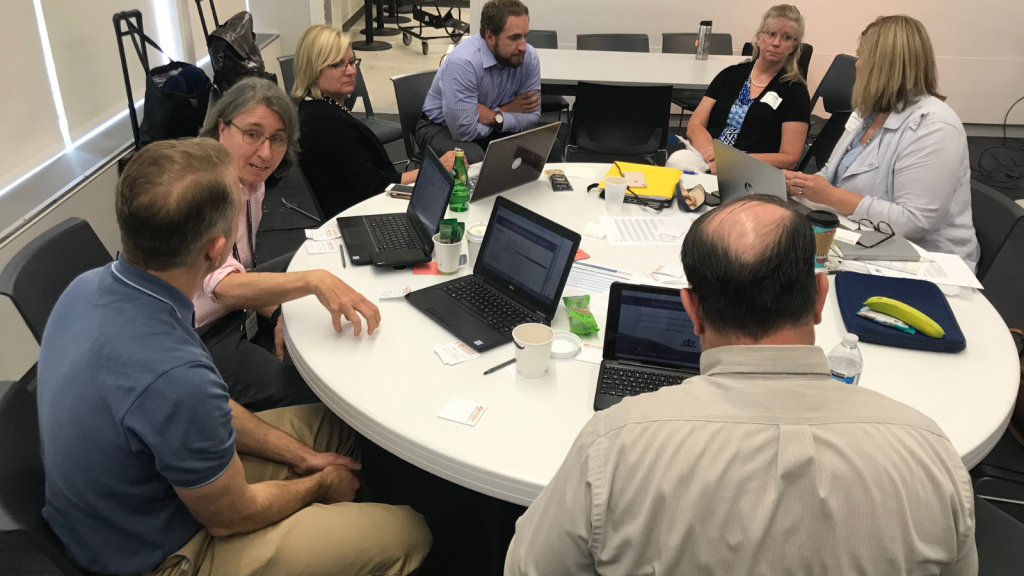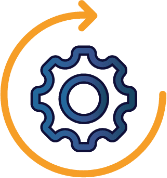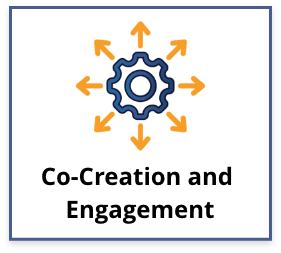Dive Deeper: Read
A Practice Guide to Support Implementation – What competencies do we need?
The Practice Guide to Supporting Implementation identifies the competencies that implementation support practitioners need to support the effective implementation and scaling of evidence-informed practices, programs and policies, to improve outcomes for people and communities.
Assessing Assets & Needs: A Powerful Practice on the Implementation Journey
SISEP Blog: Assessing Assets & Needs: A Powerful Practice on the Implementation Journey
Communication: An Essential Component Within Implementation
SISIEP Blog: Communication: An Essential Component of Implementation
Four Domains for Rapid School Improvement: An Implementation Framework
NIRN and the National Center for School Turnaround (2018) published the Four Domains for Rapid School Improvement: An Implementation Framework as a companion to the Center for School Turnaround’s (2017) recent publication of The Four Domains for Rapid School Improvement: A Systems Framework. The aim of this companion paper is to describe how to use the improvement domains in practice.
High-Quality Teaching = High-Fidelity Teaching
SISEP Blog: High-Quality Teaching = High-Fidelity Teaching
Implementation Practice in Human Service Systems: Understanding the Principles and Competencies of Professionals Who Support Implementation
This study aims to understand the role implementation support practitioners can have in supporting the use of research-supported practices, policies, and programs in human service sectors.
Implementation Support Practitioner Core Competencies
Implementation Support Practitioner Profile: Guiding Principals and Core Competencies for Implementation Practices
Let’s “Dig” into Why Implementation Support Practitioners are Needed in Education
SISEP Blog: Let's "Dig" into Why Implementation Support Practitioners are Needed in Education
Navigating the Implementation Cs: Back to School Reminders and Tips
SISEP Blog: Navigating the Implementation Cs: Back to School Reminders and Tips
Reflecting on Your Implementation Journey
SISEP Blog: Reflecting on Your Implementation Journey
What is on the menu…Context!
SISEP Blog: What is on the menu...Context!
Dive Deeper: Watch
Dive Deeper: Listen
Apply
Assessing Assets & Needs Interactive Lesson
After completing this lesson, you will be able to assess system, organizational, and individual assets and needs.
Implementation Support Practitioner Core Competencies Interactive Lessons
Here is a comprehensive list of the Implementation Support Practitioner Core Competencies interactive lessons.
Tool: Implementation Support Practitioner Core Competencies Self-Assessment & Goal Setting Kit
The Implementation Support Practitioner Core Competencies Self-Assessment and Goal Setting Kit contains two documents to assist Implementation Specialists in identifying their strengths and growth opportunities. One document is a self-assessment that allows individuals to reflect on their skills with each core competency. Once complete, the planning templates provide space to define personal goals and action planning to improve.
Tool: Root Cause Analysis: Understanding a Community Need
A root cause analysis is a valuable process for identifying the underlying causes of a problem or issue. It helps teams understand why specific outcomes could occur and allows teams to delve deep into the factors contributing to those outcomes. This document contains guidance on conducting a root cause analysis with a team. It provides step-by-step actions and an overview of potential tools for the team.
Understanding Context Interactive Lesson
After completing this lesson about understanding context, you will be able to explain why context is essential, solicit information from various perspectives, identify contextual barriers and assets, and engage in continuous problem-solving efforts/mitigating strategies.





